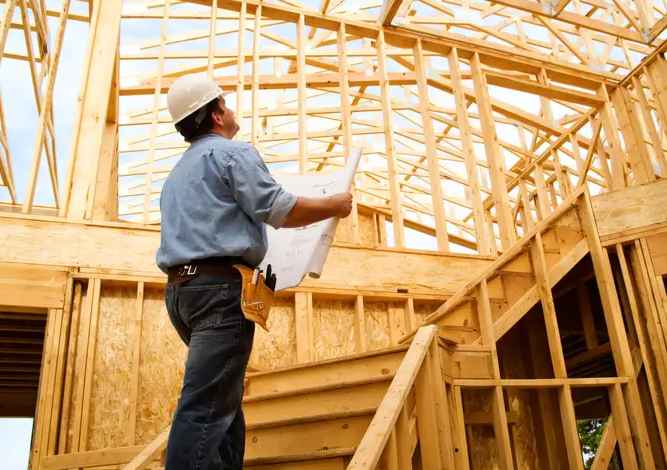What Are Rough Trades in Construction

Rough trades in construction are an integral part of the building process, providing essential services ranging from excavation to roofing. These trades are highly specialized, requiring a detailed understanding of building codes and safety regulations to ensure the highest quality work.
Here, we’ll discuss what rough trades in construction involve and how they can benefit your project. We’ll also cover some common types of rough trades and their associated costs. With the expertise of Royal Estimation, you’ll be better equipped to make the best decisions for your construction projects.
The rough trades in construction typically involve the preparation of a site for building. This can include grading, backfilling, excavation, and other forms of topographical work. Depending on the project, these services may be required to lay a foundation or create initial access points to the property.
Different Types of Rough Trades in Construction:
There are many different types of rough trades in construction, each with its own set of specialized skills and tools. Here are a few examples:
Rough Carpentry:
Rough carpenters play a fundamental role in construction by handling the initial framing and structural elements of a building. They work with various types of lumber and other building materials to create the basic framework that forms the skeleton of the structure.
This includes erecting walls, floors, and roofs, ensuring they are sturdy and properly aligned according to the architectural plans. Rough carpenters are crucial in establishing the building’s shape and support before the finishing touches are added.
Concrete Work:
Concrete work involves the skilled art of pouring and shaping concrete to create essential structural components of the building. Concrete is used to form the foundation upon which the entire structure rests, as well as footings, slabs, columns, and beams.
Precise measurements and attention to detail are essential to ensure the concrete cures properly and can bear the weight of the entire building. Concrete work is the foundation of any construction project, providing stability and strength to the structure.
Electrical Rough Trade:
Electricians play a crucial role in installing the electrical infrastructure before finishing materials enveloping the walls and ceilings. Their expertise is indispensable in ensuring a smooth and seamless integration of electrical systems.
During this stage, electricians layout and run electrical wires, conduits, and junction boxes throughout the building, following electrical plans and building codes.
The electrical rough-in establishes the framework for the electrical system, allowing power to be distributed safely and efficiently once the building is completed.
Plumbing Rough Trade:
Plumbers are responsible for the rough-in phase of the plumbing system, which involves installing water supply lines, drain pipes, and vents.
This critical phase is completed before walls and floors are closed off with finishes, ensuring that the plumbing network is in place and properly connected to serve various fixtures, such as sinks, toilets, showers, and bathtubs.
HVAC Rough Trade:
HVAC technicians set up the initial ductwork, piping, and other components necessary for the building’s heating and cooling systems. This includes positioning heating and cooling units, installing ducts to distribute conditioned air, and arranging ventilation systems for proper airflow.
HVAC rough-in ensures that the building will have efficient heating, cooling, and air exchange capabilities to provide a comfortable environment for occupants.
Mechanical Rough Trade:
Mechanical rough-in involves the installation of mechanical systems that are essential for the building’s functioning. This may include elevators, escalators, conveyor belts, and heavy machinery required for specific construction projects. It ensures that all necessary mechanical components are properly integrated into the building’s design and layout.
Fire Protection:
Fire protection specialists are responsible for installing the fire sprinkler systems and fire alarm components during the rough-in phase. Proper placement of sprinklers and alarm devices is critical to ensure the safety of occupants in the event of a fire.
The process of fire protection trade is crucial for setting up efficient systems for early warning and fire suppression. This is done to ensure safety measures are in place.
Insulation Installation:
Insulation is crucial for maintaining energy efficiency and soundproofing within a building. During this stage, insulation materials are installed within walls, floors, and ceilings to reduce heat transfer and noise transmission.
It is typically done after the electrical, plumbing, and HVAC rough-ins are completed, as these systems need to be in place before insulating the building envelope.
Low Voltage Trade:
Low-voltage rough-in involves the installation of various low-voltage systems essential for modern buildings. This includes data networking cables, security systems, intercoms, audiovisual wiring, and other low-power electronic installations.
This ensures that the necessary infrastructure is in place to support advanced technologies and communication systems within the building.
Structural Steel Erection:
In projects that require steel structures, ironworkers handle the rough-in work by assembling and installing the steel framework. This may involve erecting large steel beams, columns, and trusses that form the skeletal structure of the building.
What Are The Benefits of Rough Trades in The Construction Industry?
Rough trades are an essential part of the construction industry. They provide several benefits that make it easier to complete projects quickly and efficiently. Here are some of the advantages of using rough trades in your construction project:
Cost Savings:
Using rough trades can reduce costs significantly by eliminating the need for highly-skilled labor or expensive subcontractors. By focusing on the initial rough-in work, general contractors can save time and money.
Safety:
Rough trades help ensure safety during the construction process by completing essential tasks such as fire protection, structural steel erection, and electrical wiring on time. It reduces the risk of accidents and other dangerous scenarios that could occur if these tasks were not completed properly or on schedule.
Speed:
Rough trades help speed up the construction process by completing important tasks quickly and efficiently. This allows for other stages of the project to begin sooner, saving time and money in the long run.
Increased Quality:
Since rough trades are responsible for setting up the foundation upon which all other components are built, they can ensure that everything is done according to plan. It improves the overall quality of the project and reduces potential construction problems that could arise from mistakes made during earlier stages.
Accuracy:
When done properly, rough trades can help ensure that all components are installed accurately and in the right place. You can be sure that the building will function as designed when it is finally complete.
Conclusion:
In conclusion, rough trades are necessary for building and constructing structures safely and efficiently. From forming the foundation of the project through to the finishing touches of a completed structure, rough trades are what make construction possible.
They include practices such as rough carpentry, masonry, welding, plumbing, HVAC installation, and electrical work. Experienced and licensed professionals with knowledge of local codes and regulations help ensure projects are built with quality control measures in place.




